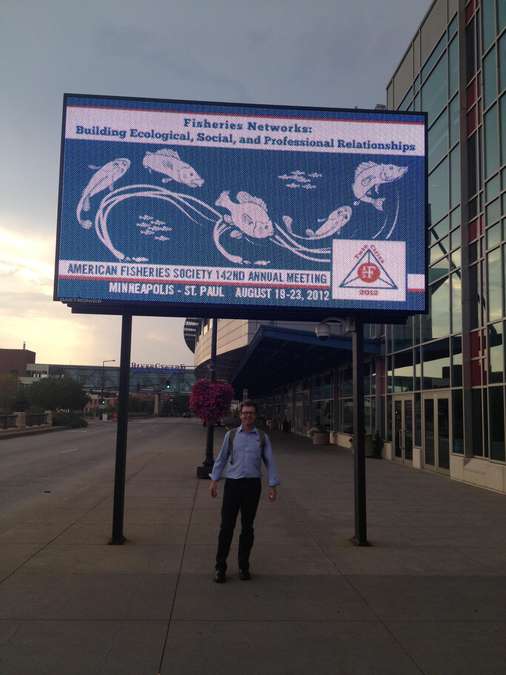Tasmanian carp eradication program taken to the international stage

The environmental damage caused by introduced pest fish species can never be underestimated. None more so than the European carp (Cyprinus carpio) with their detrimental impact on native fish populations and their often severe effect on the quality of our river and lake habitats.
Since 1995 the Inland Fisheries Service has been tasked by Government in implementing a Carp Management Program, with the aim of containing and preventing the spread of Carp in Tasmania. By any measure the program has been an outstanding success, with Carp having been eradicated from Lake Crescent and with this unwelcome guest now under sustained attack in nearby Lake Sorell.
The success of the IFS Carp Management Program has drawn some very positive international attention, with many countries keen to learn from our experience and expertise.
The American Fisheries Society held its 142nd annual meeting in St Paul, Minnesota from 19 -24 August 2012. The meeting also included a two day symposium entitled Biology and Control of Invasive Fishes: Lessons across Species and Regions. Chris Wisniewski from the Inland Fisheries Service, along with a number of international guests, was invited to present a paper on the successful eradication of carp from Lake Crescent. This work is seen as being at the forefront in integrated carp management and the recently released IACRC (Invasive Animals Cooperative Research Centre) publication “A manual for carp control: The Tasmanian model” was used as a basis for the presentation.
The symposium organisers, Professor Peter Sorensen and Dr Przemyslaw Bajer, also led a field trip to the lakes in the St Paul area where they have been undertaking their studies on common carp. This was particularly interesting to Chris as they had presented a number of related papers at the symposium.
“The opportunity to network with fisheries professionals from across the globe, and see firsthand their work is of great benefit, and it’s also fantastic for us to be able to show the positive outcomes we have been achieving back here in Tasmania, and to share that good news around so others might benefit from our team’s work,” Chris Wisniewski said following his return from Minnesota.
The IACRC, Mississippi River Basin Panel and the Inland Fisheries Service supported Chris’s attendance at the meeting.
Phil Wood